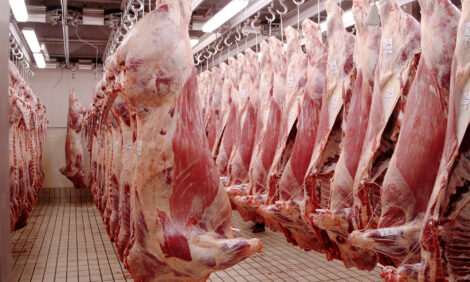



NCBA Stresses Grasslands Preservation, Disaster Assistance
US - The need for a more workable grasslands conservation program and a permanent disaster assistance program were the top priorities with ranchers today during a hearing before the Senate Finance Committee. The Committee held the hearing to discuss Oversight of Government Tax Policy in Farm Country.Terry Fankhauser, executive vice president of the Colorado Cattlemen's Association, testified on behalf of the National Cattlemen’s Beef Association (NCBA). His testimony focused on the importance of preserving our nation’s grasslands and the need for a permanent disaster relief program for agriculture.
“Our ranches and grasslands keep open spaces open. Our producers, their families, and their communities keep rural America rural. And everyone in the cattle industry is striving to keep on-the-farm jobs on the farm,” said Fankhauser. “We need to keep our grasslands and ranchlands intact, and we need tools like the Grassland Reserve Program (GRP) to help keep our producers on the land and in business.”
While NCBA supports continued funding for the GRP, Fankhauser identified specific recommendations to help make it more landowner friendly:
- The 2007 Farm Bill should give USDA more flexibility to allow private land trusts to not only hold GRP easements, but also negotiate the terms of the easements.
- Third parties should be able to use their own easement template for a GRP easement, as long as it includes the necessary grassland conservation restrictions.
- GRP easements should have the ability to be transferred to other qualified organizations in the event of dissolution or if they are unable to fulfill their easement monitoring responsibilities.
In his testimony, Fankhauser also reinforced NCBA’s support for S. 469, which will make permanent a 2006 tax code change for voluntary conservation donations – donations by private landowners that retire development rights to protect significant wildlife, scenic, and historic resources.
“That change enables family farmers, ranchers, and other moderate-income landowners to get a significant tax benefit for such donations, which simply was not possible under prior law,” explained Fankhauser. “That opens the door to voluntary, landowner-led conservation on millions of acres of land across the country.”
On the topic of disaster assistance, Fankhauser said farmers and ranchers need a permanent disaster assistance program to better deal with the impacts suffered in the wake of hurricanes, wildfires, tornados, blizzards, floods or even prolonged drought.
“Over the past several years, Congress has moved to pass disaster assistance on an ad hoc basis in an effort to help those impacted by these catastrophic events. However, it has become abundantly clear that this ‘touch and go’ system of addressing agricultural disasters is no longer an effective or viable means of providing timely aid to those in need,” said Fankhauser. “Cattle producers urge construction of a permanent disaster assistance program that includes three particular Farm Service Agency (FSA) programs: the Livestock Indemnity Program (LIP), the Livestock Compensation Program (LCP), and the Emergency Conservation Program (ECP).”
TheCattleSite News Desk


